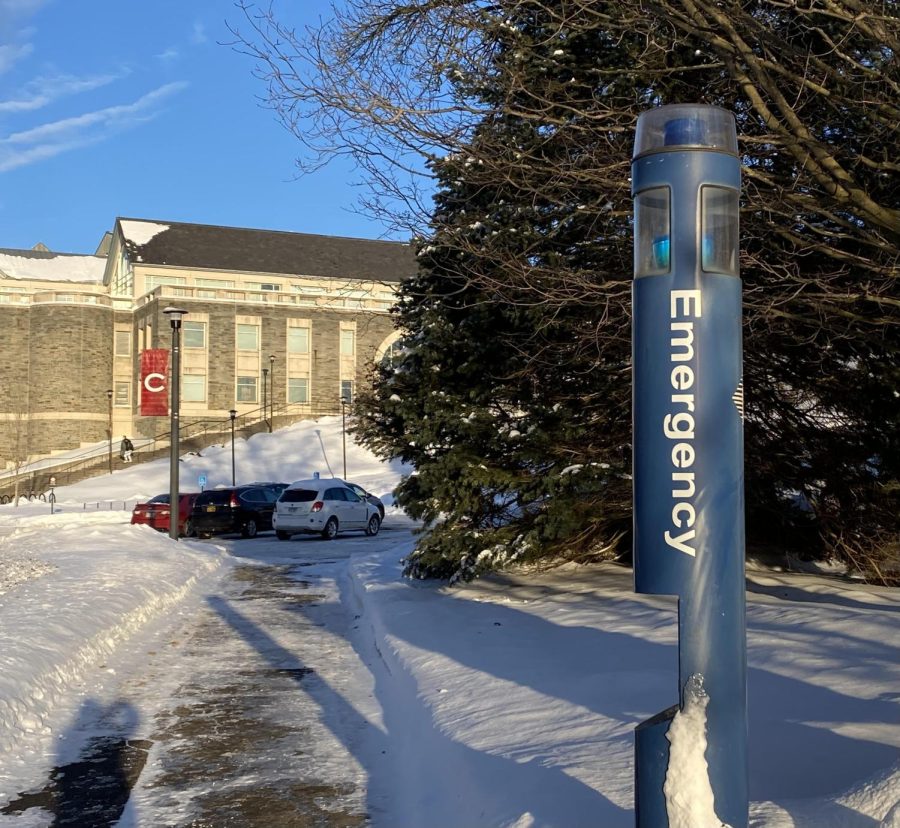Implementation of the Rave Guardian System Expected in Early March
Colgate University recently announced the introduction of a new personal safety system called Rave Guardian. According to an email from Vice President for Communications Laura Jack, the app will serve as a personal blue light device, allowing users to contact Campus Safety and first responders, report tips and share location with friends and family.
The Rave Guardian system has previously served as the university’s mass communication system, and will be implemented in addition to the blue light system, according to Joseph Hernon, the Associate Vice President for Emergency Management, Campus Safety and Environmental Health and Safety.
“So this app is a public safety tool [where] people can report tips … take pictures of things they see and report it to campus safety. Or you can also with a couple clicks of a button call 911,” Hernon said.
The app also offers a tool that allows students to share their location with loved ones no matter where they are located. Individuals can customize the app to notify an emergency contact if they do not reach their destination in time, allowing for extra security when walking around campus and town.
“Additionally it has a sync timer on it. So, the idea behind that tool is that you can kind of frame it as a ‘safe walk,’ so if my mom or someone lived in California, and I [am] walking home from the library to my apartment, I could time it out and say ‘Hey, I am going from here to there,” Hernon said.
The traditional blue light system will still remain in place, but, according to Hernon, the Rave Guardian app will allow for use of the system even when the physical blue light posts are down for repair.
“Blue lights have been around for a long time, so they do require a lot of service,” Hernon said. “So if we do have to take one down for maintenance … there is an alternative … we are building on top of the existing system.”
First-year Taylor Gilbert reflected on the efficiency the app could provide compared to the traditional blue light system currently in place.
“I think that an app would be so much better than the current system because if hypothetically I needed help … the odds I can get to a light and physically press the button and then wait for help are not in my favor,” Gilbert said. “If I can press a button on my phone I think that would make people feel safer and it’s much more accessible than a super obvious blue light stand in public.”
Members of the Colgate community are urged to participate in a test phase for the new system, and full implementation is expected by March.

Annabel Morris is a senior from Rumson, NJ concentrating in political science and minoring in Middle East & Islamic studies and anthropology. She has...







